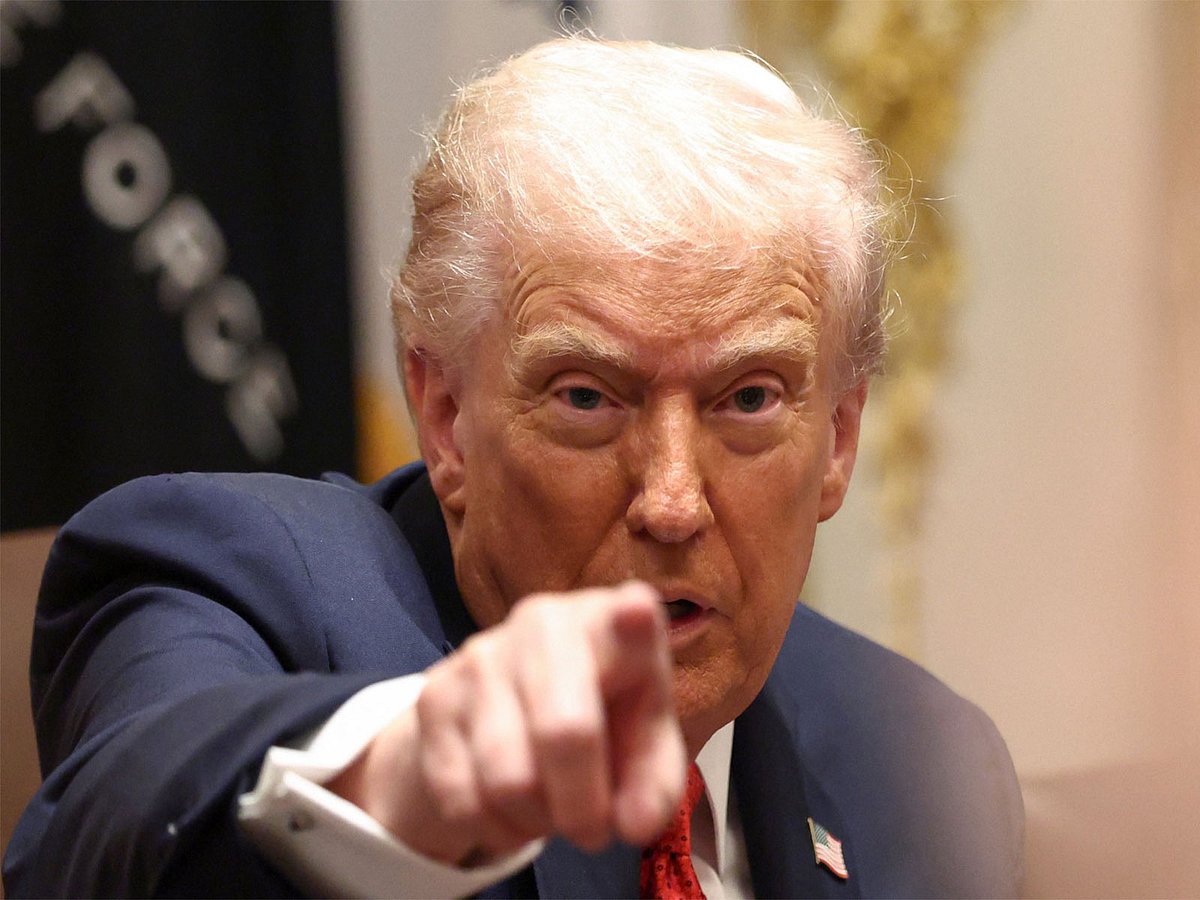Trump’s Nigeria threat over Christian killings sparks debate over faith, facts and sovereignty
Abuja rejects US claims of Christian persecution, saying violence hits all communities

Dubai: US President Donald Trump’s threat of possible military action in Nigeria has triggered diplomatic tension and renewed debate over religion, security and foreign interference in Africa’s most populous nation.
Trump said Saturday he had ordered the Pentagon to “prepare for possible action” against what he called the “mass slaughter” of Christians in Nigeria, warning that the United States would halt all aid and assistance to the country. Abuja swiftly rejected the claim, saying any attempt at military intervention would violate Nigeria’s sovereignty.
Presidential spokesman Daniel Bwala told the Associated Press that Trump’s comments were based on “misleading reports” and reflected his tendency to use threats to compel dialogue.
“When it comes to military operations in Nigeria, this is not something you can do unilaterally,” Bwala said. “Nigeria is a sovereign state.”
What triggered Trump’s warning?
The controversy began after President Trump relisted Nigeria as a “Country of Particular Concern” (CPC) — a US designation for nations accused of violating religious freedom. He said Christians in Nigeria face an “existential threat,” citing “genocidal” attacks by Islamist militants.
Conservative US lawmakers including Senator Ted Cruz and Congressman Chris Smith had urged the move, accusing the Nigerian government of ignoring the “mass murder of Christians.”
Christian advocacy groups such as Open Doors and Global Christian Relief have claimed Nigeria accounts for nearly 90 per cent of Christians killed worldwide for their faith.
Nigeria’s President Bola Ahmed Tinubu rejected the accusations as “a distortion of national reality.”
In a post on X, he said religious tolerance “remains a core tenet of Nigeria’s identity,” adding that his government was working with US and international partners to protect “communities of all faiths.”
Nigeria in numbers (2025)
Total population: about 230 million
Continent rank: Africa’s most populous country
Global rank: 6th largest population in the world
Religion
Muslim: About 53–55%
Christian: 44–46%
Traditional/Other faiths: 1–2%
North — mostly Muslim | South — largely Christian | Central — mixed (Middle Belt)
Ethnic composition
Hausa–Fulani: 30%
Yoruba: 15%
Igbo: 15%
Other ethnic minorities: 40%
Urban snapshot
Major cities: Lagos, Abuja, Kano, Port Harcourt
Urban population: 54%
Languages: English (official), Hausa, Yoruba, Igbo, plus 500+ local dialects
Economy
GDP (2025 est.): $500 billion
Main sectors: Oil & gas, agriculture, services, telecom
Challenges: Inflation, unemployment, insecurity, regional inequality
Is there a Christian genocide in Nigeria?
Analysts say the picture is far more complex than the White House rhetoric suggests.
Data from the Armed Conflict Location & Event Data Project (ACLED) show that Islamist violence in Nigeria is largely “indiscriminate,” affecting both Muslims and Christians.
Since 2009, more than 52,000 civilians have been killed in political or sectarian attacks. Between 2020 and 2025, ACLED recorded 389 incidents targeting Christians (318 deaths) and 197 targeting Muslims (418 deaths).
The violence is driven less by religion than by geography, poverty and resource competition:
In the northeast, insurgent groups such as Boko Haram and ISWAP continue a 15-year campaign that has killed over 40,000 and displaced more than 2 million people.
In the central belt, clashes between Muslim herders and Christian farmers stem from land and water disputes.
In the northwest, criminal bandit gangs kidnap for ransom, burn villages, and attack both faiths.
“The crisis is far more complex than a simple religious framing suggests,” said Taiwo Hassan Adebayo of the Institute for Security Studies. “The geography of violence largely determines who becomes the victim.”
How Nigeria is responding
The Tinubu government denies that Christians are being systematically persecuted but admits insecurity remains severe. Nigeria’s military has launched air strikes and special operations against armed gangs, and the president recently replaced his security chiefs to improve coordination.
Former Christian Association of Nigeria chairman Joseph Hayab, a pastor in Kaduna, said both Christians and Muslims are vulnerable but official inaction has worsened the problem. “The issue is not religion but the state’s failure to secure lives,” he said.
Why Trump’s comments matter
President Trump’s order for the Pentagon to prepare for action has raised fears of US overreach. Nigeria insists that no foreign military operation can occur without its consent.
Analysts say Trump’s rhetoric appeals to evangelical voters at home while risking diplomatic friction with a strategic African partner.
“This criticism from Washington did not happen in a vacuum,” said Cheta Nwanze of Lagos-based SBM Intelligence. “It’s the result of many years of insecurity and impunity — a symptom of massive state failure.”
The bottom line
Both Christians and Muslims suffer from Nigeria’s overlapping crises of insurgency, banditry and resource conflict — problems that defy simple religious narratives. While Trump’s threats may resonate politically in the United States, they have reopened questions about sovereignty, selective outrage and the limits of US power.
For Nigeria, the challenge is internal: Restoring security and public trust before external actors attempt to define its story.
Sign up for the Daily Briefing
Get the latest news and updates straight to your inbox
Network Links
GN StoreDownload our app
© Al Nisr Publishing LLC 2026. All rights reserved.
